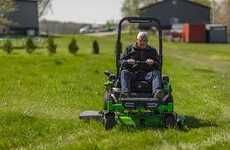
BMO Supports the Ag Literacy for Healthier People & Planet Program
Kalin Ned — July 4, 2024 — Social Good
References: newswire
BMO has donated $1 million to the Simpson Centre for Food and Agricultural Policy at the University of Calgary's School of Public Policy to launch the Ag Literacy for Healthier People and Planet program. This initiative aims to enhance understanding of the agricultural system and its impact on health and the environment. The program, involving 13 universities across Canada and Stanford University in the U.S., will conduct research and outreach over five years to promote better food choices and inform agricultural policy design.
The Ag Literacy for Healthier People and Planet program will also provide various educational resources to the public on contentious food system issues such as GMOs, pesticides, and food labeling. By engaging with diverse audiences, the program seeks to foster informed decision-making about food and agriculture. A special focus will be on engaging young adults and teenagers, particularly through social media.
Image Credit: Simpson Centre for Food and Agricultural Policy
The Ag Literacy for Healthier People and Planet program will also provide various educational resources to the public on contentious food system issues such as GMOs, pesticides, and food labeling. By engaging with diverse audiences, the program seeks to foster informed decision-making about food and agriculture. A special focus will be on engaging young adults and teenagers, particularly through social media.
Image Credit: Simpson Centre for Food and Agricultural Policy
Trend Themes
1. Collaborative Research Initiatives - The initiative fosters a multi-university collaboration to drive impactful agricultural research and public outreach.
2. Educational Outreach Programs - Programs like these emphasize educating the public on food system issues, promoting informed food choices and policy-making.
3. Youth Engagement Via Social Media - Targeting young adults through social media aims to increase agricultural literacy among a tech-savvy demographic.
Industry Implications
1. Agricultural Education - Expanding agricultural literacy through formal educational programs and public outreach can reshape perceptions of food systems.
2. Health and Wellness Industry - Linking agricultural literacy to health outcomes may spur innovative interventions for better public health.
3. Social Media and Digital Platforms - Utilizing social media for educational purposes can transform how agricultural knowledge is disseminated to younger generations.
5.5
Score
Popularity
Activity
Freshness























